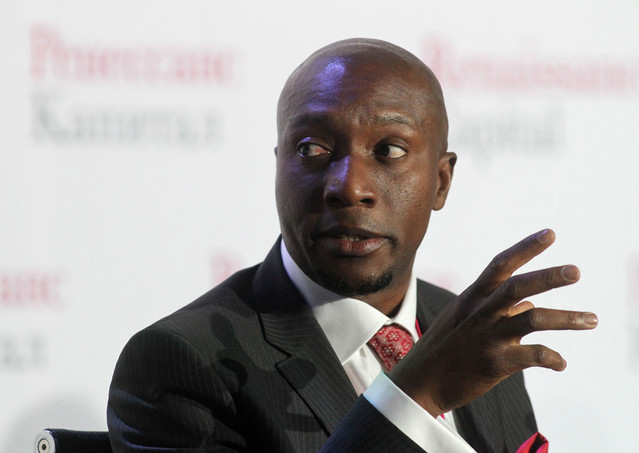NSE declares Skye Bank, 14 other stocks ‘below listing standard’

The Nigerian Stock Exchange (NSE) has placed a ‘below-listing standard’ (BLS) tag on Skye Bank and 12 other stocks presumably to warn the public about investing in them.
The other stocks are Afromedia, John Holt, African Alliance Insurance, Great Nigeria Insurance, Resort Savings & Loans, Universal Insurance Company, Aso Savings & Loans, Ekocorp, Ikeja Hotel, Union Homes Savings & Loans, Smart Product Nigeria, BAA, Guinea Insurance, and Niger Insurance
They have failed to file their periodic unaudited results of 2016, as well as audited results for 2015, and 2014 financial years, according to the NSE.
NSE Chief Executive Officer, Mr Oscar Onyema, explained that the BLS tag of the Exchange is its version of ‘buyers beware’ warning in respect of the affected stocks, especially as the exchange is bound to defend the market integrity, and protect all stakeholders, including investors.
The tag on affected companies is used by the bourse to warn the public about investing in them, as there could be uncertainties which could have delayed the release of their financials. Such doubts could only be cleared when the affected companies make public the long-awaited results. The bourse requires listed companies to release timely and accurate information about their
Afromedia and John Holt were labelled BLS for missing regulatory filings of its audited result for the year ended September 30th, 2016. John Holt also earned the sanction from the NSE for failing to deliver its audited 2016 financial result within the three months regulatory requirement.
The two companies with a September 2016 year ending were expected to deliver their result before or on December 31st, 2016. For failing, they have been sanctioned by the NSE for breaching post-listing rules and creating doubt in the minds of their shareholders and prospective investors.
Skye Bank was sanctioned by the NSE for failure to deliver its First quarter (Q1), second quarter (Q2) and third quarter (Q3) results respectively. The bank’s name appeared in three schedules of the NSE X-Compliance default list.
The bank’s result for 2015 financial year reflected that the bank recorded loss of N40 billion, irrespective of net income of N50.4 billion driven by net interest income of N50.9 billion and net income from fees and commission of N15 billion.
The results, however, showed that the hyper performance was cleaned up by N27.5 billion provisioning for bad loans and N40.8 billion (operating expenses) general and administrative expenses.
Following the bank’s 2015 stressed audited 2015 result released to the NSE on 29th July 2016, the Central Bank of Nigeria (CBN) intervened in the operations of Skye Bank and took over the management of the financial institution, a development many stakeholders have interpreted as arresting a distress situation of the bank.
Having sacked the board of the bank elected by the bank’s shareholders, the CBN appointed its own officials that took over management of the bank.
The bank in 2015 issued bonus shares of one share for every 20 shares held by shareholders, yet following developments in the bank, a cross section of shareholders have expressed concern as what becomes the fate of their holdings in the bank as it has been taken over by the federal government.
According to the CBN “Although the existing board had done its best to steer the ship, it was clear that it would be unable to bring the bank out of its present precarious situation”
To replace them and pilot the affairs of the bank out of the precarious state, the CBN appointed two bankers Mr Muhammed Kabir Ahmad as Chairman and Mr Tokunbo Abiru as Managing Director Chief Executive. The apex bank also appointed Mr. Bayo Sanni and Mr. Idris Yakubu as executive directors, while Markie Idowu and Mrs. Abimbola Izu were retained as executive directors.
Over the past five years, records from the NSE show that Skye bank has remained a delinquent filer of audited and periodic results.
For instance, the bank’s Q1, Q2, Q3 and audited 2013 result were all filed on July 11, 2014, reflecting a challenged institution.
Meanwhile, stakeholders have expressed concern that experts brought in by the apex bank to salvage the financial institutions may have sustained the bank’s tradition of filling results late or opting to de-list the bank from the NSE, a development that would create more doubt on the fate of their other investments in the market.









